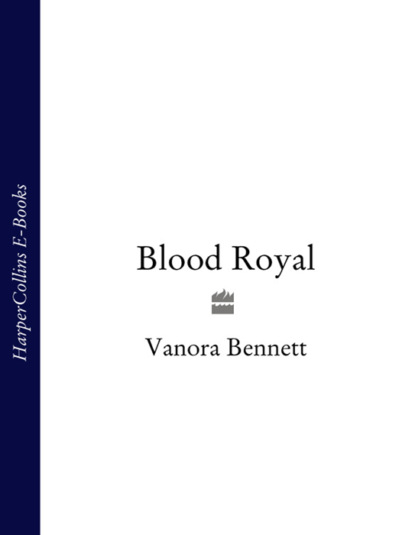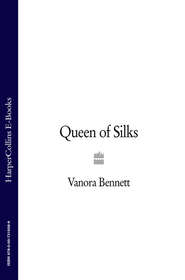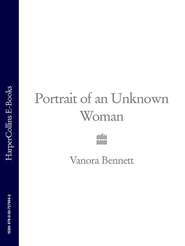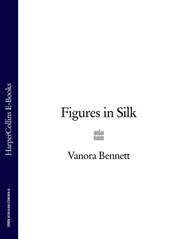По всем вопросам обращайтесь на: info@litportal.ru
(©) 2003-2024.
✖
Blood Royal
Настройки чтения
Размер шрифта
Высота строк
Поля
Quietly, her father said: ‘Not Henry of England.’ But it wasn’t really an answer. She had a feeling he was thinking of something quite different. He gave her a knowing look. He grinned. ‘George.’
‘George?’
He grinned again. ‘Me.’
She stared. Had she misheard? He burst out laughing. Then he looked cunning. Then surprised. ‘Don’t tell me you didn’t know,’ he said, and winked at her. ‘I am Saint George of England.’
She didn’t know what to do.
She didn’t understand what he was saying.
She just knew she needed help. Father needed help. He wasn’t himself.
She edged back, looking for a man-at-arms to signal to.
But before she could catch any eyes of the men in the doorways, her father looked down at the doublet he was wearing, which was decorated with woven fleurs-de-lys.
She saw the look of terror on his face; a terror so intense she nearly screamed with it. His face contorted. His eyes popped. ‘Spiders! Spiders!’ he yelled, beginning to scrabble at them, getting a grip on one flap of the cloth and ripping it away from his body with hands that weren’t, after all, so frail and old.
Now men-at-arms did start to appear, clustering near him, looking alarmed. ‘Spiders! Get them off me!’ he was squealing in horror.
‘They’re not spiders, Father,’ she said faintly, but he was down on the ground now, snarling and grabbing the material with his teeth, saliva pouring from his mouth, worrying at the cloth like a dog chasing its tail. ‘They’re French lilies. Your emblem.’
What she was most aware of, apart from the strange, unreal quality of everything that was happening this morning, was that although the men-at-arms were frightened, they weren’t surprised at the way her father was behaving.
They were grouping themselves around him; ready to pick him up. They didn’t, though. No one dared touch the King’s person. They were waiting for an order. With a slow buildup of horror, she realised they were waiting for an order from her.
‘Filthy French spider lilies!’ she heard as she turned away. She could feel tears welling up inside her. She couldn’t cry. She swallowed. Seeing the captain of the guard’s eyes on her, she nodded. There was nothing else to be done.
‘Tell my mother,’ she said, covering her eyes with her hand as if shielding them from the wind. Guardsmen shouldn’t see a princess of the blood royal lose her dignity.
She must have known, in a part of herself. But understanding it now was like feeling her own fabric being ripped agonisingly apart. No one was surprised except her, because they’d all seen it before. This was what her father’s illness was. He was mad.
Catherine was still sitting in her mother’s private chapel, what might have been hours or moments later, when Christine found her. Christine had decided to come to her as soon as she’d heard the news of Azincourt. This was no time to remember past bitterness, Christine thought determinedly, rushing to the Hotel Saint-Paul; it was a time for old friends to come together. She’d been missing her visits for months. Catherine would need her.
The brazier seemed to give no warmth. There was a threat of early snow in the air. Christine was shivering under her furs with the shock of the news from the front; and even from here she could see Catherine shaking.
‘My charge needs me,’ she said to the guard who automatically stepped forward to block the way of anyone trying to disturb the Princess’s privacy. She turned tragic eyes on him.
‘Seeing as it’s you …’ the guard said, perhaps seeing the red rims of those eyes. He let her through.
Catherine was on her knees, alone. She was looking at her hands. They were a bloodless, whitish blue. Christine didn’t think she’d been praying.
She slipped down to her own knees beside the Princess.
When Christine opened her arms, Catherine let herself sink into them.
‘I saw Father …’ Catherine muttered, ‘… start … you know …’
Christine held her tighter. She hadn’t known that. It took her breath away. She hadn’t thought anything worse could happen today.
‘He said he was Saint George of England. He tore the fleurs-de-lys off his own back. Called them spiders.’
Christine smelled the Queen’s overblown rose oil on the girl’s hair; but she smelled the freshness of youth there too. Catherine should have had so much to hope for. But there was so much to fear as well. How sorry Christine felt for this girl, facing a hardship she couldn’t yet begin to understand. The first of many, maybe.
‘They should have told you before,’ she said, and by ‘they’ she meant ‘the Queen’. ‘You’re not a child any more.’
‘He’s … mad,’ Catherine said, raising her eyes to Christine; and in those unfocused pupils Christine saw bottomless depths of horror; demons and crawling spiders. ‘Possessed. We’re cursed. All of us. France is cursed.’
It was so close to what Christine was thinking that she drew in breath. Catherine was being braver than she’d expected – naming her fears. Still, she shook her head.
Catherine said harshly: ‘But it was you who taught us. The King is the head of the body politic. The nobles its arms and hands. The peasants its legs and feet. You remember?’
Reluctantly, Christine nodded.
‘Well, doesn’t that mean that, if the head goes mad, the country goes mad with him?’
A pause.
‘That’s what’s been happening all this time, isn’t it?’ Catherine said.
Christine couldn’t bear to agree.
‘They’ve always just shut him away,’ Christine said in the end, changing the subject, aware she sounded disjointed but unable to compose herself fully. ‘Whenever this happens. Everyone’s scared to admit he’s gone mad. He used to get violent. He’s not violent any more. I go to him sometimes. There are servants. We know. But he’s afraid; always afraid. He never has anyone he loves with him.’
‘What about my mother?’
Christine shook her head. She knew it was disingenuous not to tell Catherine that whenever the King, in his madness, saw his wife, he attacked her. But years of dislike of everything about the Queen – a dislike she couldn’t discuss with Catherine – stilled her tongue. She let the accusing silence deepen.
‘But he loves you,’ she said quietly. ‘If you went to him … if you weren’t afraid … if you listened to the things he’s afraid of … who knows what good that might do? It might help make him whole … it might even help heal him …’
Catherine drew in breath. She could hear that even Christine, who was suggesting it, thought it a faint hope. She bit her lip. She said, with dread: ‘You mean … me … go to him?’
Christine nodded.
‘When he’s …’ Catherine muttered, looking down. Flexing her fingers.
Christine drew her closer; put her own hands over those fingers; let Catherine bury her head in her breast. The girl needed comfort; it would help her make her decision. Then, through their shared heartbeats, Christine murmured, with utter certainty, ‘Yes. Now.’
He was in a white shift. He was in a white room she’d never seen before, with guards outside. Christine stayed behind with them; squeezed Catherine’s arm as they opened the door.
He was up on the window ledge, with his feet drawn up from the floor, staring out at the white sky.
‘I’m parched,’ he said, not looking at her, in a little-boy voice. But when Catherine poured him water from the jug on the table, he ignored it.
She waited. The voice began again; cunning this time. ‘You won’t fool me. You’re pretending to be my little Catherine. But I know who you really are and what you want. You want to steal my soul. And you’re cruel, cruel … you know how thirsty I am … the thirst of the damned … my soul’s so parched and desperate … you’re just trying to trick me with your water … you know I can’t drink.’
Catherine sat very still, feeling the stool beneath her. She thought: I have to say something. She said: ‘Why?’









